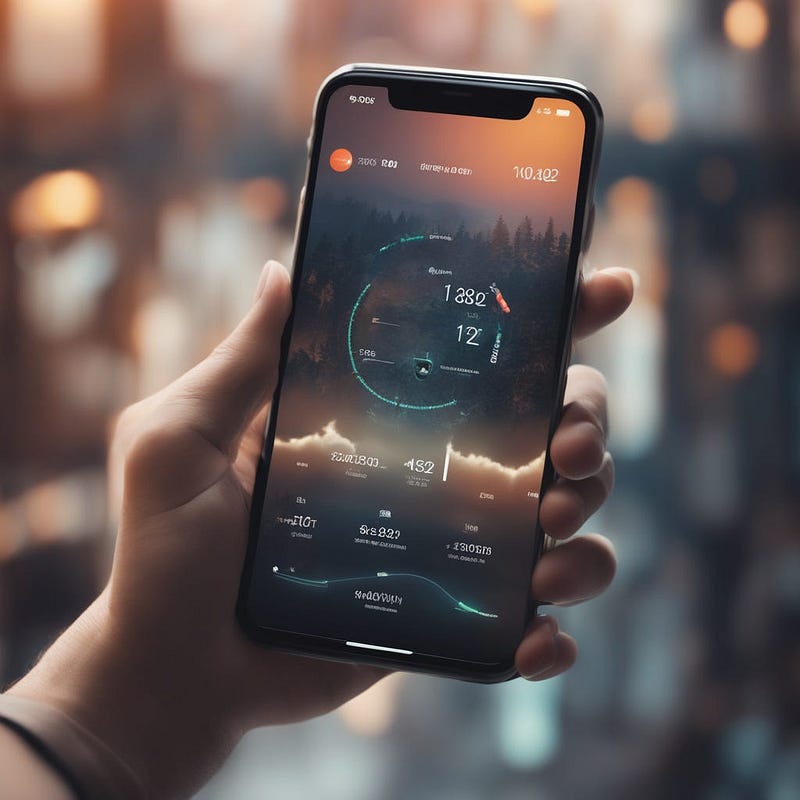# Reimagining Government Banking: A Digital Future for All Citizens
Written on
Chapter 1: The Case for Universal Banking
In a less-discussed yet compelling proposition, the Federal Reserve should offer free basic checking accounts to all citizens. While I typically advocate against centralizing services, I believe the advantages of universal banking outweigh any potential downsides. By rethinking how governments engage with their citizens, we can pave the way for a more inclusive financial landscape.
A Tax on the Underprivileged
As of 2023, around five percent of households still lack even a basic checking account. The reasons are varied, but the primary issue appears to be the inability to meet minimum balance requirements. Consequently, the unbanked population is often among the poorest segments of society. In our digital payment-oriented world, these individuals incur significant fees from prepaid debit cards or check-cashing services, making poverty even more burdensome. We must address this issue.
Innovators like Matthew Yglesias have suggested that the Federal Reserve could establish an online portal for citizens to obtain free checking accounts through government channels. For those lacking internet access, postal offices could serve as physical locations for in-person banking services.
While commercial banks are likely to oppose this initiative, their pushback may be limited. The Fed accounts would be designed for basic transactions such as deposits, bill payments, and ATM withdrawals. Banks could easily promote their more profitable offerings, such as certificates of deposit and savings accounts, to customers using Fed accounts. Ultimately, this could relieve banks of the less profitable segment of their business—standard checking accounts.
At a minimal cost to taxpayers, we could significantly improve the financial lives of the unbanked, aiding them in their journey out of poverty. However, the benefits of universal banking extend beyond just the underprivileged; they could positively influence society as a whole.
Section 1.1: Enhancing Financial Security
To grasp these advantages, we need only look at recent events. Bank failures have triggered irrational fears among depositors, leading to bank runs that unnecessarily destabilized multiple institutions. A universal Fed account would come with a guarantee from the government, ensuring its reliability.
In times of economic turmoil, universal banking could provide significant advantages. Recall how the distribution of stimulus checks during the early days of the pandemic took an extended period, causing delays for those in need. A universal banking portal would allow the government to wire stimulus funds almost instantaneously, eliminating the logistical challenges of mailing millions of checks.
Similarly, if you lose your job and apply for unemployment benefits, there would be no waiting for physical checks or debit cards. Your funds could be deposited directly and immediately. Should we adopt a universal basic income system, these payments could also be deposited automatically into citizens' accounts. Furthermore, tax refunds would be credited right after filing online, streamlining financial processes.
Subsection 1.1.1: Simplifying Taxation

Imagine the same online portal also offering free tax filing services. Americans currently spend an estimated 6.5 billion hours and tens of billions of dollars each year on tax preparation—an inefficiency that is absurd. Filing taxes could be as easy as logging onto an app, verifying your information, and confirming your submission. In Estonia, individuals can complete their tax filings online in under five minutes—this is not merely aspirational.
Additionally, the public often lacks understanding of how their tax dollars are utilized. The online portal could feature a section with a pie chart illustrating the distribution of tax funds, fostering greater awareness of government spending and enabling voters to make informed decisions at election time.
Section 1.2: Expanding the Portal's Utility
Universal accounts could transcend financial services. With some creativity, this online banking portal could become a key link between the government and its citizens. It could house digital copies of identification, passports, and even education and healthcare vouchers, allowing users to compare local services.
If the government seeks public input on new laws or regulations, the portal could facilitate informal surveys, enabling millions to express their opinions quickly and efficiently.
The possibilities for such a universal portal are virtually limitless. Moving beyond the realm of banking, this platform could transform our relationship with government—from a cumbersome obligation to a collaborative partner, equipping citizens with the necessary tools to navigate their lives more effectively.
Chapter 2: Further Exploration into Government as a Platform
Video Description: This video discusses how new foundations can support natively digital public services, emphasizing the role of government as a platform.
Video Description: This presentation covers the transition of government as a platform, detailing the shift from principle to strategy and implementation.